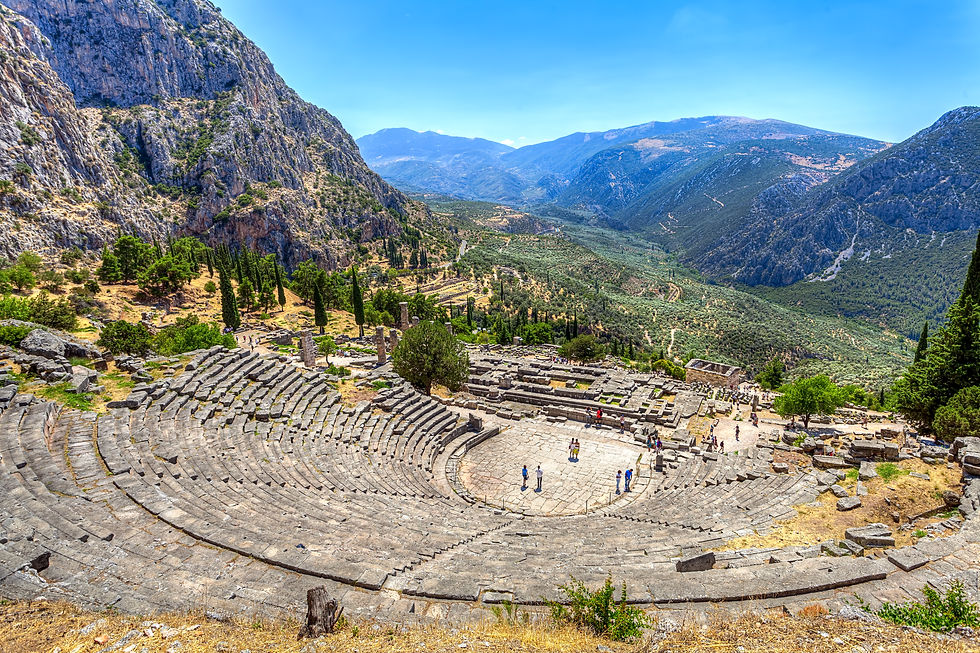The Ancient Guide to Modern Life
- Spartan Stoic

- Jan 19, 2023
- 4 min read
By Natalie Haynes
Natalie Haynes engages in a lively and fun discussion of how ancient Greece and Rome influenced our lives today. It also serves as a good introduction to the ancient world, with the cameos of a wide array of characters: Socrates, Cicero, Agrippina, Pericles, Spartacus and more. Sources used are many of the key ones people with an ancient history interest would have heard of – Homer, Virgil, Aristophanes and all the usual culprits Ancient History fans will know are leaned upon to explore provenance of ancient history today.
Heroic Nature
Each chapter, broadly and generalising here, tends to take a particular theme – politics, law, economics, feminism and relates this to the common world, our perception and relation to the ancient history. For example, the chapter I particularly enjoyed – no business like show-business – looks at stories and entertainment of ancient times and how it relates to modern media, film and hero stories. This has echoes of Bernard Knox’s study of the heroic elements of Oedipus, or Joseph Campbell’s monomyth. The picture of the hero arguably hasn’t been spoken of in such a compelling way as in Ancient Greece, and modern adaptations, as Haynes points out with Beowulf and Troy (pp.188) haven’t always lived up to the provenance of the ancient tragedies and plays of figures such as Heracles or Oedipus.
In comparing Oedipus to characters from The Wire, ‘deciding to shun the destiny he was given’ (pp.194) Haynes is not incorrect, but perhaps necessitates greater explanation. Although it is true that he shuns his destiny, his heroic nature is hugely important, as writers such as Bernard Knox have explored. Sophocles was subverting the ideal of the hero: Oedipus acts like a hero but fate has other ideas, and is ultimately in control. This interplay involves the Greek belief in the Fates and the Gods pulling the strings and the importance of the hero ideal. Yet, simultaneously, the tragedy of Oedipus brings about his own fall, influenced by fate. His natural state is as a hero, and he cannot avoid what Fate has decided for him, especially when he tries to shun it. My main criticism of this book that sometimes it is covering so many different characters and events, or aspects of complexity such as this, that it can be slightly shallow or gloss over certain aspects and not really cover some parts adequately. This book is an introduction, but that does have its downsides with particular subject matter. Despite this, the selection and breadth of characters is strong. It is just that perhaps with such breadth it becomes easier to miss certain points or facts.
Ancient perspective
The book is an exercise at beating down anachronisms, looking at what life was like for the everyday person, and not just the emperors or elite. How we view the ancient world is often skewed to these massive figures: Alexander the Great, Julius Caesar or Socrates. But life was different for the common person, and Haynes does a good job of writing about the common farmer or slave struggling to get by.
One chapter on feminism might be divisive but I think it shows the confidence of a writer not afraid to put forth their case. My main question – regardless of your beliefs – is whether the analysis of historical figures such as Sappho, Dido and Agrippina is balanced. The latter is a great choice to review: Nero’s mother Agrippina was an active figure politically, influentially, and had to vie with Seneca and Nero. Haynes recognises Agrippina’s prowess and clout, whilst also acknowledging her underestimation of her son who eventually had her murdered. Despite the feminist viewpoint then, Haynes comes across very balanced here.

A compelling case?
Is the case compelling? Does the ancient world provide much relevance today?
There was one section, where part of the response to why study ancient history? – seemed to be ‘because we can’. (pp.253) Which was the weak part of an answer in my opinion to the otherwise reasonable take that most difficult things to learn have the perception of being dull – when really they are the most useful or necessary. I can’t say I agree that things should be learnt just for their own sake. But focussing on this example does a disservice to the knowledge and examples used throughout the book, which for the most part are interesting, lively and great to read. It even, for example, managed to make Roman law interesting, speaking of Cicero’s manipulation of it which was a central part of Roman aristocratic life and an important part of accumulating prestige.
If nothing else, it enables us to look to the future with optimism and courage, instead of a creeping fear that things inevitably get worse as time goes on.
(Pp.249-250 The Ancient Guide to Modern Life)
We should learn from history else be doomed to repeat it, and often, unwittingly, we repeat it regardless as Haynes points out. Things were often far more brutal, tough or punitive in ancient times, and yet western society flourished. It would seem to suggest that it is important to stay positive despite periods of difficulty, and by exploring ancient law, economics, society, philosophy and war, we should hasten to not forget the important lessons available to us.
Final score
Lively, engaging and fun, this is a great book to give somebody who isn’t familiar with the ancient history of Greece and Rome and it’s provenance. Even for someone experienced with the period, it was often illuminating and interesting, although it does sometimes feels a bit shallow from the amount of references it is making, barely dipping into certain aspects before jumping to the next. Buy it for someone who hates ancient history, and fans will likely still find something of interest here.
7/10



